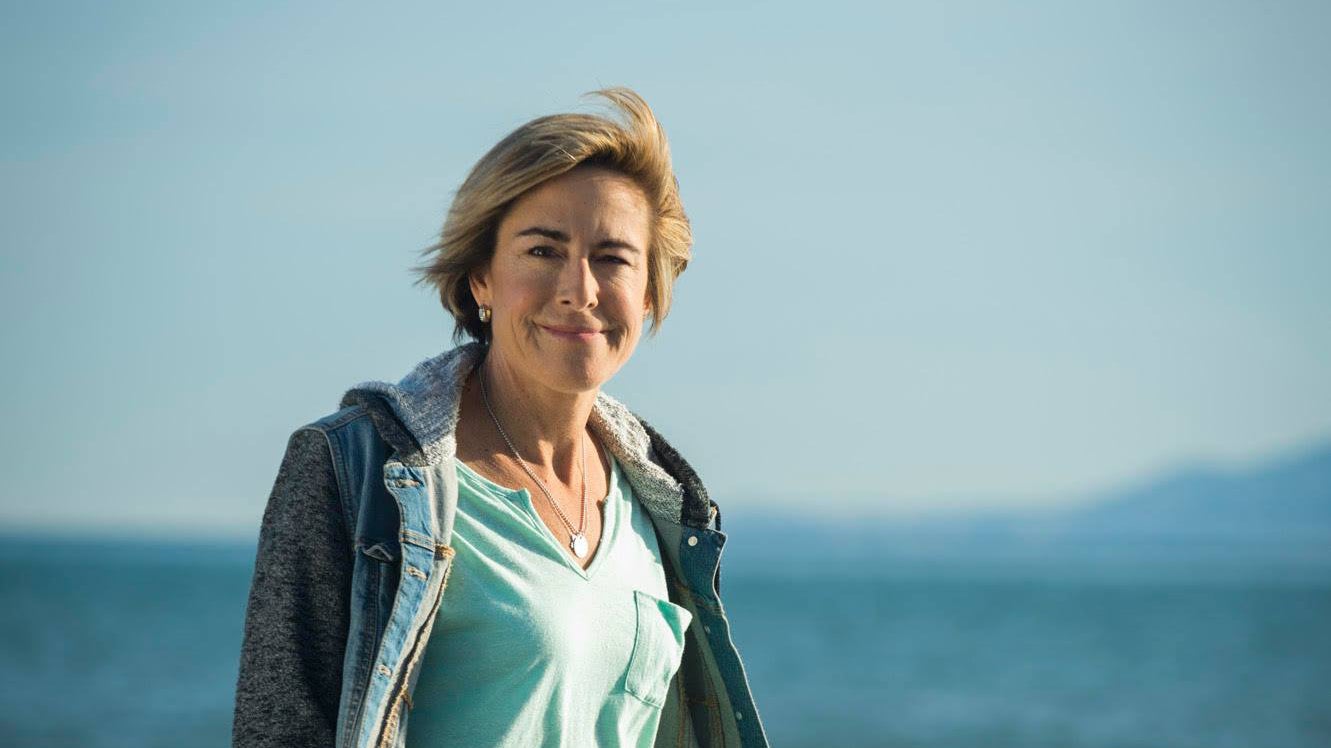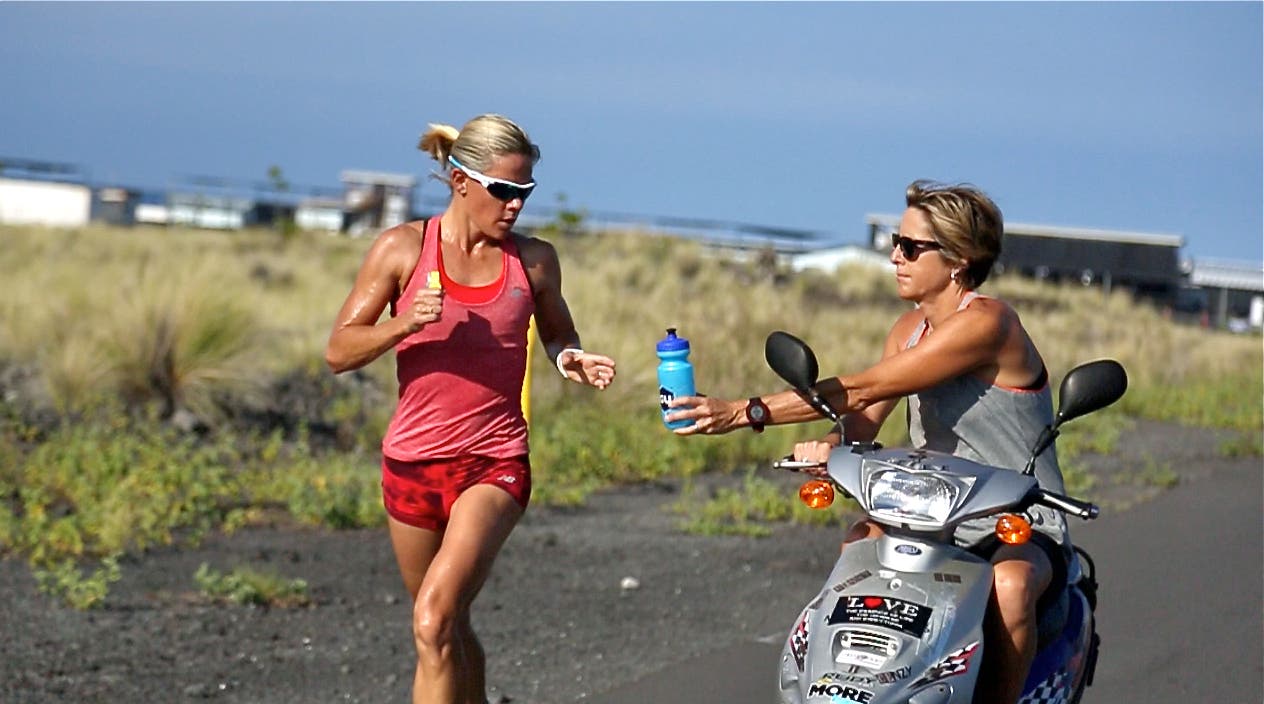Siri Lindley Wins Her Greatest Battle—Recovery

The moment Siri Lindley was told she had leukemia, she turned to her wife and said: “I am going to survive. I am going to survive and I am going to thrive again.” Anyone who knows her would know that—even against medical odds—the power of her mindset and the strength of her positivity would help her recovery. And now that’s exactly what she’s done. After going through treatment that sometimes saw her vomiting 45 times a day, losing 15 lbs, and taking 60 tablets daily, the former ITU world champion is now officially cancer-free—and has a renewed verve and energy for life that is undeniable.
“It has been the hardest thing I’ve ever been through in my entire life, but when you go to the bottom it means that when you finally feel any better or any stronger, you celebrate it,” she said. “Every day is a miracle, every moment is a miracle.”

Lindley, who also coached Mirinda Carfrae to three Ironman World Championship titles, said it has been “a rollercoaster,” but: “It’s taught me that life is not a straight line and to never expect that. Yet as someone who finds the gift in everything, no matter how tough, no matter how hard, I mean, this has brought me to my knees—but there has been so much grace and so many gifts.”
The Boulder-based coach, who is also a popular motivational speaker, first realized something wasn’t quite right about two years ago when problems with her hips began giving her more and more pain. “I thought it might be arthritis or because I trained so hard when I was racing,” she said. “It was really starting to bother me; I could still run but it was painful and slow. When I start my talks, I always go out and dance my butt off, it’s how I kick off my talks, but it got to the point where it was affecting my ability to dance, so I figured I needed a hip replacement.”
She said it was around the same time that she started feeling more tired, and while in Kona last year for the Ironman World Championship the heat affected her more than usual and her legs were always aching. It was only when she went into hospital for routine pre-op procedures for a hip replacement that it became apparent something was seriously wrong.
“They told me they weren’t going to be able to go ahead with my surgery as something was wrong with my blood,” she said. Her bloodwork was sent to top cancer doctors in Denver who then gave her the diagnosis: She had acute myeloid leukemia and it was “already moving along”—in fact, 45% of her blood was showing to be affected. She revealed the diagnosis on her IGTV Bedhead Chronicles on Dec. 5 last year.
“I’ll never forget—I looked over at Bek (Rebekah Keat, Lindley’s wife and former pro triathlete) and she had tears pouring from her eyes,” she said. “I looked in her eyes and I just had never felt her love so deeply as I had in that moment and I’d never felt my love for her so deeply as I did in that moment. And in that moment, I said: ‘It is not my time to go; I am going to survive.’ In that moment I made that decision—and decisions are so incredibly powerful when you feel it with all your heart and you declare it.”
The path forward, though, was far from an easy one, especially as the COVID-19 pandemic was beginning to ramp up at the same time as her treatment was taking place. Yet even in her very darkest moments, Lindley never lost sight of the decision she made that day.
She said she used the gut instinct she had honed as an elite athlete to help her determine the best course of treatment, and it involved a clinical trial, the goal of which was to get her into remission.
“The plan was for me to get a bone marrow transplant the minute I hit remission,” she said. After two months on the trial (for which she later learned she was only patient number seven), she did, in fact, go into remission. A week of intense chemo and radiation followed before the transplant could take place.
“They stop just short of killing you, they drop a bomb on you, but they had to wipe out everything so that when I got the new transplant there’s no evidence of anything left,” she said. “That week was pretty horrible and scary, but I went into my bone marrow transplant on Feb. 21.”
She said she felt like a “shadow of her former self,” but never stopped believing that she was doing exactly what she needed to do to triumph over the leukemia. And it was one of her greatest triumphs as a professional athlete—winning the ITU World Championships in 2001—that helped remind her of what she has been capable of in the past.
“I had every inch of my walls in my hospital room as vision boards, covered in photos and things that reminded me of how I have made the impossible possible before,” she said. “I kept focusing on what I had, what I wanted, what I loved, what I could control—and any time I got into feeling fear or sadness or despair, which I did, often, I would pull myself out and reframe what was going on.”
The parallels to life and triathlon, she said, were always abundantly clear to her, and it is a lesson and a story she plans to share with the wider world to help inspire others in times of hardship.
She said: “I would often try to reframe what was happening and understand the meaning of why this is happening to me, why it’s for a greater purpose. I am going to have so much more to give this world; I’m going to have a message to help truly inspire others. Giving it (cancer) an empowering meaning like this helped energize me. It can be a powerful story about making it out of places you don’t think you can get out of, whether that’s sadness, sickness, despair.”
She attributes much of the success of her remission to her mindset, constantly focusing on what she had, not what she was missing. “I had vision boards reminding of the life that was waiting for me and my photo from winning the world champs to remind me that I have proven in the past that the impossible can be possible.”

Having this greater meaning helped inspire her to heal and get better and share every aspect of this journey, she said, continuing: “Disciplining my thoughts and focusing on things that would help me heal versus weaken me was so important—and it’s an incredible lesson for athletes, too.”
“You can be in a race and be having a tough day and things are really hard. If you focus only on how bad you feel, how slow you’re going, you’re just going to get worse and worse. But if you’re out there and your legs feel a little tired but your breathing is great and you start focusing on putting out your best effort, focusing on what you can do, not on what you can’t, then suddenly your legs will start feeling better. This kind of thinking is energizing rather than weakening. The lesson in all of this can be related to any aspect of anyone’s life.”
After her bone marrow transplant, doctors had asked Lindley to stay in Denver near to the hospital for 100 days, so in case of emergency she would be nearby. But 40 days into this spell she begged doctors to let her move back home.
“I was able to convince them this would be best for me, especially considering we were in the middle of a global pandemic,” she said, and ever since being back home on her Boulder ranch she says she has felt invigorated and it has arguably expedited her recovery.
And the greatest news of all came just a few weeks ago.
“I got a phone call about my latest bone marrow biopsy, which I was getting done every three months, and was told I am now completely cancer-free. I got that call and just cried my eyes out with gratitude. It’s a miracle and I will never ever take this miracle of my health and this life and every single moment for granted again. Life is the ultimate gift and I do feel like I have so much loving, giving, and inspiring work to do in this world. I truly believe I have another 50 years, and so now it’s a matter of staying cancer-free forever more, getting my strength back, and getting back to being able to live life full throttle again.”
For Lindley, this means being with her wife on their ranch surrounded by their animals (they run the Believe Ranch & Rescue, which rescues horses) and getting back to being with her athletes once life returns to normal: “I can’t wait to be riding my bike beside them while they’re doing their run sets, running our team camps, and being back on stage at Tony’s events.” (She took part in a virtual Tony Robbins event just earlier this week).
The future for Lindley looks much like her past, yet with an added bonus—she will continue to guide athletes of all levels to reach their full potential, but now with an even greater appreciation for the fragility of life and health—and an even deeper drive to inspire all those around her. Lindley’s time isn’t up, it’s just beginning.